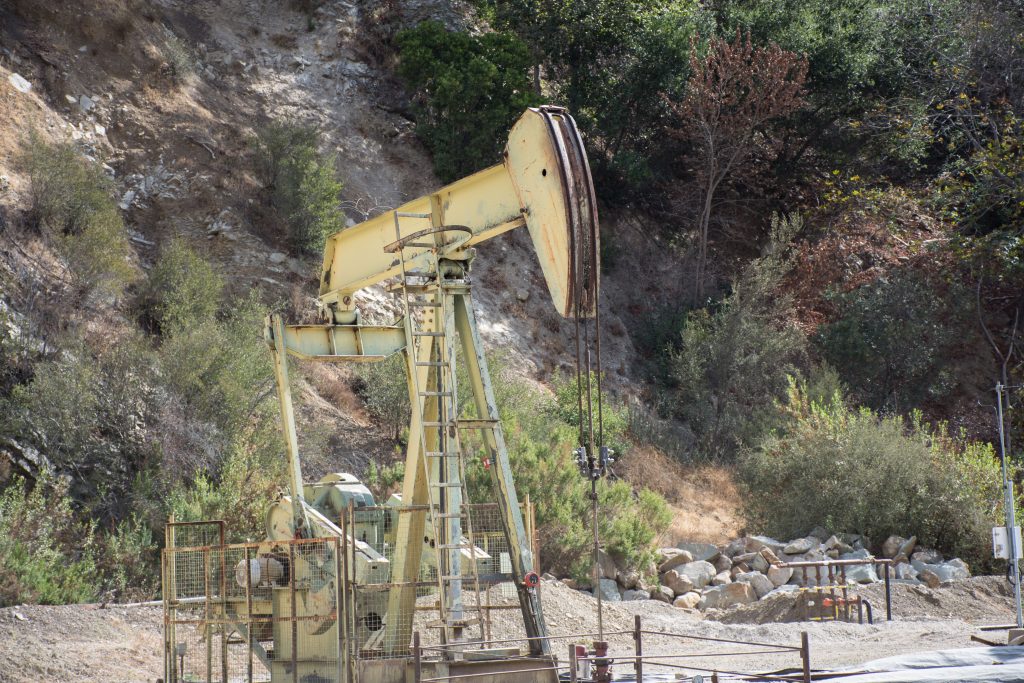
Yesterday, the Ventura County Planning Commission advanced a suite of measures to ensure that the oil industry holds enough financial backing—including insurance and bonding—to address oil spills and a growing number of defunct oil wells throughout the county. The new rules will now go to the Board of Supervisors for final approval later this year.
The zoning ordinance amendments are aimed at closing a loophole that allows oil companies to provide as little as $10,000 in surety bonding to cover hundreds of wells throughout the county. The bonds are supposed to ensure that oil companies comply with the terms and conditions of their permits, including cleaning up and remediating wells that no longer produce oil. But the low amounts—set in the 1980s—were nowhere near the funding needed to properly reclaim a drilling site, leaving taxpayers on the hook for potentially millions of dollars if a company goes bankrupt or otherwise refuses to clean up unused facilities.
The changes—approved with a 3-2 vote by Commissioners King, Aidukos, and Zimmerman-Garcia following a four-hour hearing—included the following:
- Surface Restoration Surety: these funds would ensure that all equipment is removed and well site restored if the oil company does not complete these requirements at the end of operations. The Planning Commission approved amounts ranging from $100,000 to $10 million depending on how many wells the company currently operates.
- Well Abandonment Surety: these funds would ensure that non-producing wells are plugged and abandoned in a timely manner. The Planning Commission approved a surety of $36,000 per well not to exceed $5 million for any single operator.
- Long-Term Idle Well Supplement Surety: these funds would provide incentive for oil companies to address wells that have been idle for 15 years or more. This supplemental bond would be $15,000 for each long-term idle well not to exceed $5 million for any single operator.
- New Insurance Provisions: four new categories of insurance requirements for general liability, pollution liability, control of well, and excess/umbrella liability.
- Permit Term: new or renewed oil and gas permits would only be valid for 15 years, instead of the traditional 20-30 years. Applications to renew an existing permit must be filed within 12 months of permit expiration.
While these changes signal a vast improvement over current requirements, the Commissioners failed to adopt a series of modest changes proposed by ForestWatch and 16 other environmental and community groups, including lifting the $5M cap for the largest operators, reducing the permit term to 10 years, and requiring renewal applications to be filed sooner so that County staff and the public have enough time to consider them before expiration. The groups also recommended that new wells be granted on a 1:1 basis to ensure that the company also plugs, abandons, and remediates an equal number of existing wells.
Groups calling for more stringent requirements included 350 Conejo/San Fernando Valley, 350 Ventura County Climate Hub, Central Coast Alliance United for A sustainable Economy (CAUSE), Climate First: Replacing Oil & Gas (CFROG), Conejo Climate Coalition, Climate Reality Project: Ventura County, Community Environmental Council, Food & Water Watch, Indivisible Ventura, Keep Sespe Wild, Los Padres ForestWatch, Patagonia, Runners for Public Lands, Sierra Club Santa Barbara-Ventura Chapter, Ventura Audubon, Ventura Climate Coalition, and Ventura County Chapter – Citizens’ Climate Lobby. In addition, more than 300 Ventura County residents wrote letters to the Commissioners urging them to strengthen the recommended changes.
At the hearing, the fossil fuel industry rounded up its usual cadre of oil companies, lobbying groups, and chambers of commerce to echo the tired refrain that the new requirements were overly burdensome, unfair, too expensive, or unnecessary. Some felt victimized because the County didn’t consult with them behind closed doors. And most of them dispatched thinly veiled threats to sue the County if the proposed changes become final. Some, such as Aera Energy—the company with the most idle wells in the county—have already retained expensive law firms. Aera is currently suing the County and bankrolled the $8M campaign that successfully defeated—by a slim majority of voters—a different package of reforms. The company is also one of the many that has paid just a single $10,000 blanket surety bond for their nearly 2,000 wells in Ventura County despite being owned by Shell and ExxonMobil, each of which posted massive profits last quarter. Watch ForestWatch’s director of conservation and research talk about this in his testimony yesterday:
In addition to Aera, the companies and groups opposing yesterday’s action included Carbon California (which operates most wells in the Sespe Oil Field in Los Padres National Forest), ABA Energy, Western States Petroleum Association, Coalition of Labor Agriculture and Business (CoLAB), Renaissance Petroleum, Ventura County Taxpayers Association, and Ventura Chamber of Commerce.
The measures now head to the Board of Supervisors for final approval later this year. We thank County staff for their hard work, the Commissioners who voted for the new rules, and the hundreds of local residents who spoke out in favor of protecting our communities and our environment.







Comments are closed.